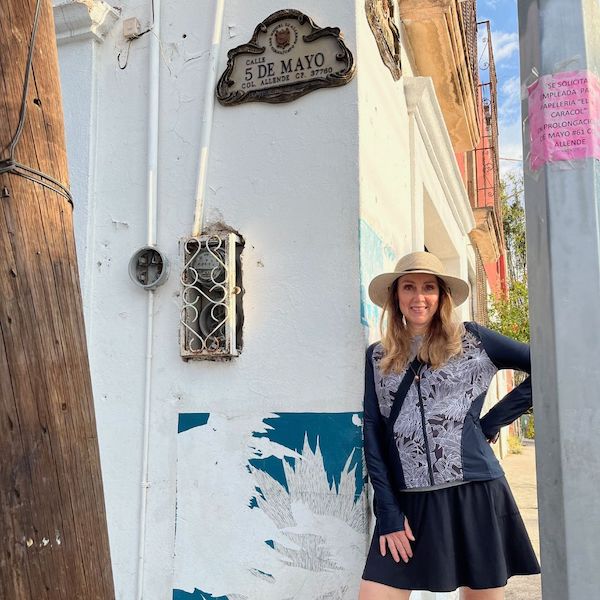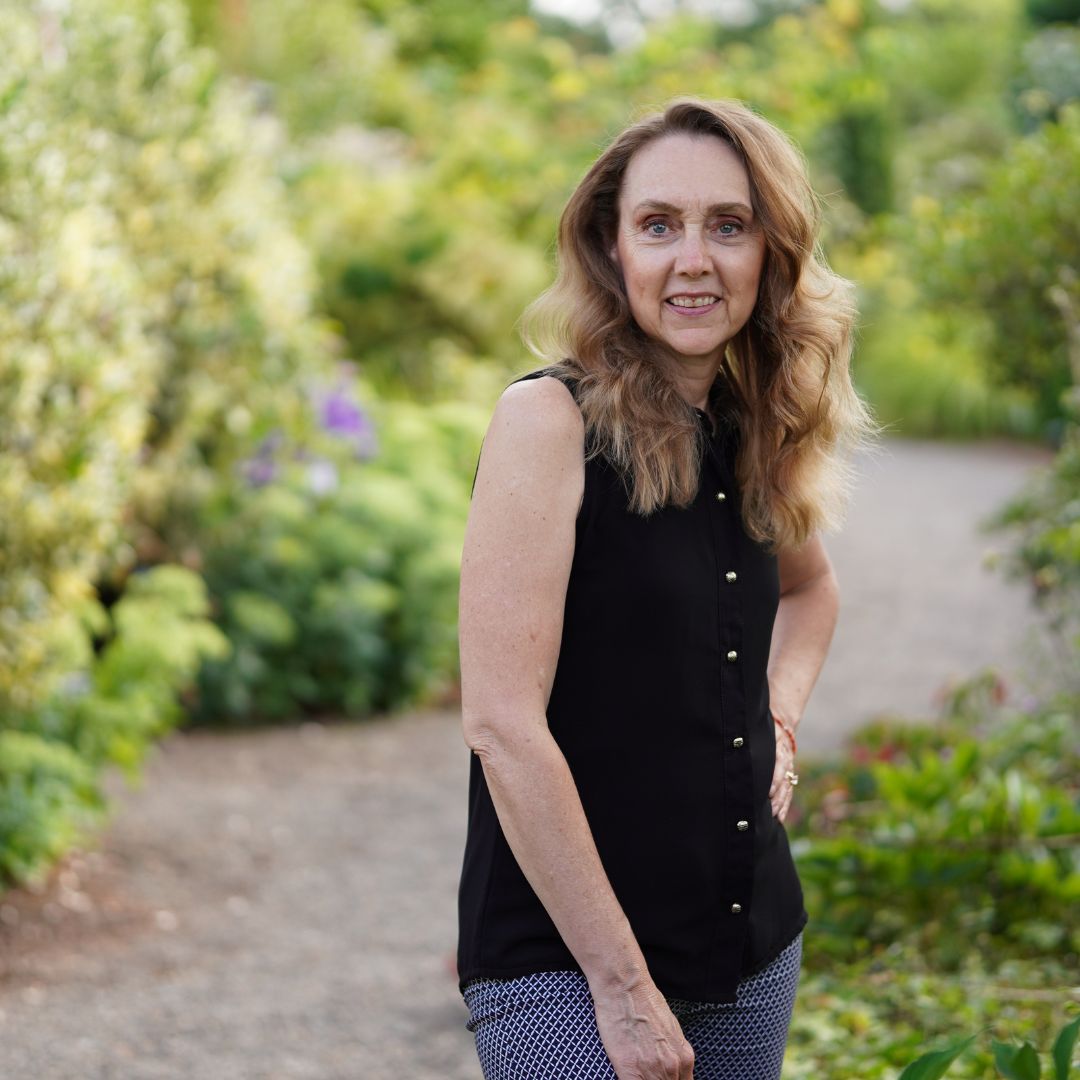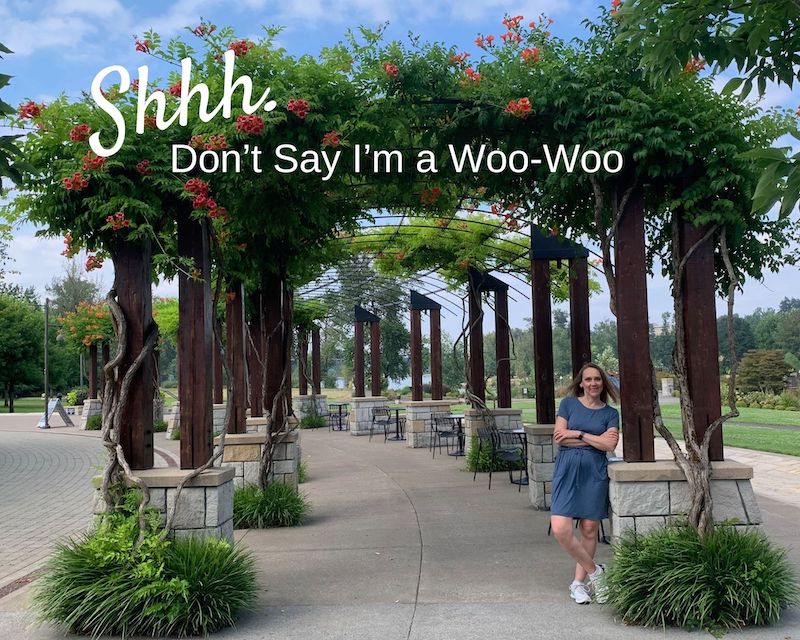Have you ever taken the test to discover your “RealAge?”
I’ll admit it. I’m a quiz geek. As a child, I’d grab any magazine that had a quiz. I was always curious to find out what celebrity I’d fall in love with, what bikini I should wear, or what eyeshadow would look best on me.
My quiz selection changed as I aged. But it’s never stopped my desire for “inside” knowledge. I love when the results lead me to a “WOW” feeling. (How do they know that about me?)
Years ago, I saw a link online to take a test and find your RealAge. Yep, I took it. And I’ve taken it several times since.
What fascinates me isn’t where I place or how far away my RealAge is from my actual age. (Though being several years longer does put a smile on my face. Good job, Lori!)
What I love about it is being able to personally assess my mindset and discover new ways I can self-care. The RealAge test asks a variety of questions to evaluate your eating, exercise, and sleep habits, along with family health history, existing conditions, and behaviors. Then you can use the data to further develop a lifestyle plan.
I’m a firm believer in keeping my body as young as possible. That’s why I’ve developed my Foundational Wellth Class, and why I believe it’s important to define your wellness goals.
See, a long time ago, I decided I didn’t want to spend years in the medical system, or find myself getting sicker every year. I decided I wanted to be healthy at 100, and created a plan for how I’d get there. I wanted to shorten the time between decline and death.
These goals and strategies guide everything I do.
Let’s focus for a moment on why that’s important.

What we’re taught about aging
First, let’s define chronological and biological aging.
Chronological aging is the period that passes between the date you’re born and any given date in time. If you’re 50, your chronological age is the amount of time between birth and 50.
Biological aging is when your body’s cells and tissues accumulate damage over time. This can lead to things like physical decline, cognitive decline, and other ailments many often experience in midlife and beyond.
What I find incredibly frustrating about Western medicine is the ability to ignore health until “disease” is in place. Then we throw everything at it. Take pills. Have surgery. Look for quick fixes.
And yet we teach people to continue to ignore the problem back when it started to occur.
How do I know this? It all started when my dad died at 54 of a massive heart attack. I asked: Why? And I discovered all the symptoms were there; it’s just that everyone ignored them.
- He was under massive stress. He’d gone through several years of re-interviewing for his job while his company continued to downsize and force people out.
- He loved his meat and potatoes. He carried extra weight around his middle.
- Did I say he loved his meat and potatoes? Foods like asparagus, spinach, and squash were never in our house.
- His lifestyle choices didn’t align with his health.
That was almost thirty years ago. I’ve learned a lot in thirty years.
As I inched closer to fifty-four, I started hearing my own aging friends fall into aging traps. They’d say things like:
- I’d rather eat the foods I love now and die early.
- It’s just a part of aging.
- It’s time I act my age.
- I’m too busy to fit an exercise routine into my days.
- But I love __ (meat, dessert, processed foods, etc)
- I’ll worry about that when I retire.
- It’s just one prescription … (one turns into two, to three, etc)
Okay, here’s what I believe. Aging is natural. I’m excited to be the age I am now. I’m not going to hide it or try to look like something else.
But as we age, our cells stop regenerating like they did when we were younger. When we add the “bad” stuff to the process, it increases the biological aging process, which in turn impacts the speed of chronological aging.
What to do?
Aging we can control
Every year when you celebrate a birthday, you’ll enjoy one more year around the sun, and your body will naturally adjust to everything that occurs in your life during that year.
While there are many reasons your biological and chronological ages might not match, let’s talk about oxidation.
Oxidation is a natural process that happens as your body responds to everything that happens to it. It reacts to what’s around you – the environment, pollution, chemicals – and the choices you make – food choices, alcohol, stress, exercise.
Bodies need good stuff to thrive. It’s pretty evident that there is a ton of bad stuff all around us. Whether you breathe in pollution as you walk around the city, work in a building with bad indoor air quality, consume foods that don’t provide proper support for the cells in your body, oxidative stress starts to damage the cells, which leads to accelerated aging.
So when my goal is to be a healthy 100-year-old, it means keeping up with all of the external and internal factors to ensure I’m the best me at every age. That’s why things like RealAge help.
While this is a self-taken resource tool that gives you information based on your input, it’s a good place to start. If it’s new to you, and can alert you to places you can begin to do some work. And that’s what this is all really about.
It’s time to Proage! Slow down the aging process by doing these …
I think deep down inside, we’re all aware of what it takes to create a healthy body. Yet the circus we currently call life can easily get in the way.
What’s healthy eating?
I just did a quick search and found an article titled “100 Different Diet Plans” and almost laughed. That’s where we’re at with our food supply and dietary considerations.
We no longer have a problem finding food, where our problem lies in discovering what GOOD food is.
- Mediterranean diet?
- Keto?
- Paleo?
- Low carb?
- Carb cycling?
- Low fat?
- DASH?
- Intuitive eating?
- Mindful eating?
(I really did find a doctor and a study recommending a meat diet with no fruits or vegetables mixed in. Unbelievable. This diet should be ruled out even with basic critical thinking skills.)
On and on it goes.
Here’s what I believe. I believe whole foods are best. Get as close to the source as possible so you’d recognize your food out in the wild. And realize that humans are and always have been “lazy.” Why chase down a wildebeest when it’s easier and safer to grab an apple off a tree?
So pick the tomato from the vine. Pull a carrot from the ground. Chop kale for dinner. Pluck a pear from a tree.
You are what you eat.
It’s equally important to step into organic foods too. Are organics perfect? No. But there are more controls in place to ensure it’s high-quality food. Better-for-you food.
I believe it’s important to take in three balanced meals set up to give you an overnight fast of at least 12 hours to ensure complete digestion and support overnight detoxification. If you eat all day and night, your food cannot fully work through your system. Intermittent fasting allows your body to work harder on counteracting free radicals that can make you age faster.
Food is a big part of it, but it’s not the only part. Sitting still is a hazard – bodies like to be in movement.
I have an upstairs office in my home. Every 30 minutes or so, I’ll run downstairs and do a chore. Throw a load of laundry in. Pull out a few ingredients for dinner. Or refill my tea mug. It gets me back into the focus zone when I return to my desk, and moving around and up and down 20 stairs helps me stay active.
That’s not all I do, but it helps me in my quest for 10,000 steps a day.
I work at de-stressing by meditating, heading out into nature each day, or working through a yoga routine.
Quality rest is imperative to good health. Seven to nine hours of restful sleep ensures the body is primed and ready for the next day.
And did I mention supplementation? In theory, a well-rounded whole-food diet should do the trick. But there’s a lot wrong with our current food system. Supplementation is a great way to ensure you’re getting the nutrients your body needs. Every body is different, so it takes research and playing with the right patterns to create a system that suits your needs.
Don’t begin with a diet or an exercise routine. Start with mindset first.
So many people hit a certain age, have a “problem,” or take a test that provides less than stellar results.
Countless women I’ve worked with say things like:
“I went all in on a plant-based diet, but I messed up by the second day. So I gave up altogether.”
That’s because they’ve missed the most critical part.
Diets never stick when you haven’t worked on mindset first.
You have to have your why.
And when you’re why is based on something negative like a test result, you’re doing everything based on shame.
You’re here. You’re starting to realize that mindset is everything.
It’s time to take charge once and for all.
I’d recommend starting with my Foundational Wellness Class. It’ll give you tools and resources to define your own wellness plan and really think about your approach. (And it’s free!)
Want more? Fall in love with journaling! I’ve created several that help you dig deep into your health and wellness right here at midlife. I’ve used these in my own practice multiple times and love them! I think you will too.
And if you’re ready to work one-on-one, I’ve got you covered. We’ll talk about your wellness goals and help you get crystal clear about your plant-based journey. It’s the best way to create Gorgeous Wellth in your own life!
Here’s to your journey,
Lori


+ show Comments
- Hide Comments
add a comment